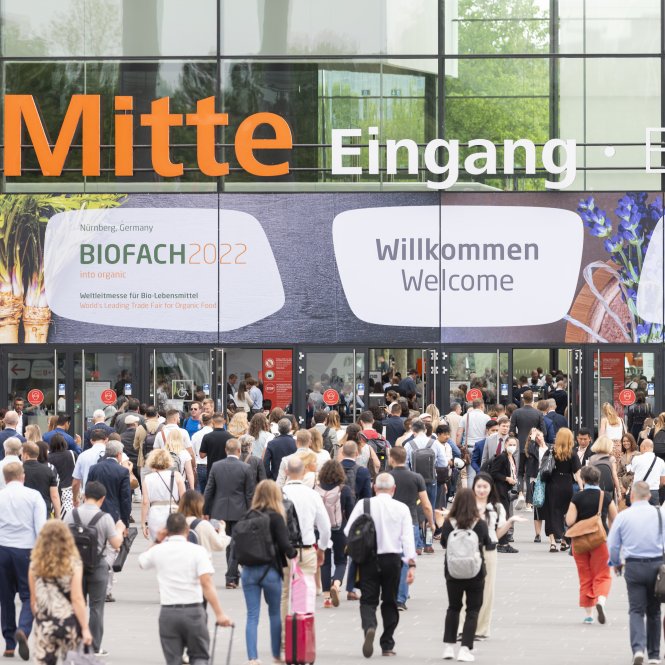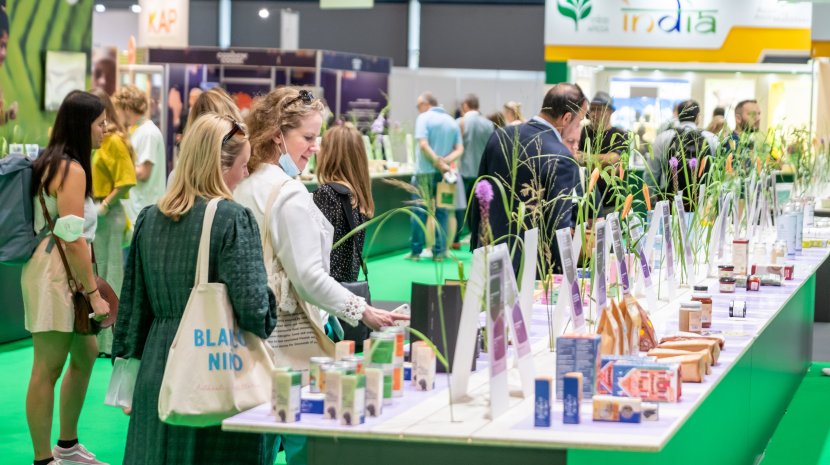

There is much to celebrate for the organic industry in 2022: Six round anniversaries of international and German associations are coming up. For NürnbergMesse magazine, they draw the "big picture" of the industry: status quo, challenges, future. For Karen Mapusua, President of the world association IFOAM, "now is the time for great ambitions".
When organic was still in its infancy, the International Federation of Organic Agriculture Movements (IFOAM) was founded in 1972. Its vision: to promote the widespread adoption of sustainable agriculture, value chains and consumption in line with organic principles.
Fifty years later, organic is no longer a niche. There are 3.4 million organic farmers worldwide, producing on 75 million hectares of land. In more than 18 countries, more than 10 percent of arable land is already certified organic. The leader here is Liechtenstein (41.6%), ahead of Austria (26.5%) and Estonia (22.4%).
In 2020, the global market for organic products reached a volume of 120 billion euros, 14 billion more than the year before. The USA (49.5 billion euros) is ahead of Germany (15 billion euros) and France (12.7 billion euros) in this ranking. Karen Mapusua is nevertheless convinced: "There is still a lot to do!"

Karen Mapusua, Präsidentin des Weltverbandes IFOAM
Advancing organic requires influencing policy and global forums. "We have achieved three things in the last five years," the IFOAM president is pleased to say. First, organic is being recognized worldwide as part of the solution to the three global crises of climate, food security and biodiversity. Second, all major global forums are highlighting organic agriculture as a strategy to be promoted, Mapusua said. And third, myths such as "organic couldn't feed the world" and "organic is bad for the climate" have finally been debunked, he said. That is why climate resilience was also one of the major topics at this year's Summer Edition of BIOFACH, BIOFACH, the world's leading trade fair for organic food.
The 2030 targets are ambitious, but we all know that now is the time for big ambitions.
The challenges for the organic movement remain great 50 years after IFOAM's founding, says Karen Mapusua: "We need to grow organic agriculture at the pace needed for food security, climate and market needs." It's a mammoth task that will require farmer training, capacity building in the organic sector, prosecution and sanctions for fraud, exposure of greenwashing, and, most importantly, massive policy mobilization.
The policy is ambitious. By 2030, the organic share is to rise to 25% in the EU and as much as 30% in Germany. "Very bold targets," says Karen Mapusua, "but they are to be welcomed because we all know that now is the time for big ambitions. The whole ecological world is looking to the EU, learning from its experience and hoping to emulate its successes."
But achieving these goals will require some action, such as reallocating agricultural subsidies to reward farmers for protecting biodiversity, soil regeneration, climate and animal welfare, Mapusua said. "Fees on the use of pesticides and non-renewable fertilizers can ensure that environmental and health costs are reflected in the cost of conventional food," Mapusua believes.

With some 800 members and supporters from more than 120 nations, IFOAM has successes for the industry to build on: The formation of an agroecology coalition of 30 nations and more than 50 global organizations at the UN Summit on Food Systems, for example, dedicated to spreading organic worldwide.
Or the development of robust organic regulations. Already fully operational in 76 countries, they have yet to be fully implemented in 20 more, and 15 are currently working to develop such. Karen Mapusua invites the entire organic industry to participate in the dialogue, "including at BIOFACH, so that together we can chart the course for the next decade."
But what matters most to her is "that we drive change by strengthening and empowering our member organizations around the world in their advocacy through the Organic Academy, advisory services, and sharing best policy and advocacy practices through our global network."
Image credits:
NürnbergMesse/ Uwe Niklas



